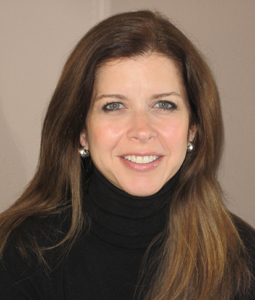She once developed an educational program that graduated 200 GED students in rural Puerto Rico
By Samuel T. Clover ’91
 In 2001, Brenda Santiago ’88 found herself in a Hanes underwear plant in rural Puerto Rico, facing hundreds of middle-aged women about to lose their jobs. As an economic development specialist, she had been handed a microphone by a Hanes exec to tell the workers that though their factory was closing, they could enroll in a state-sponsored training program to learn new skills.
In 2001, Brenda Santiago ’88 found herself in a Hanes underwear plant in rural Puerto Rico, facing hundreds of middle-aged women about to lose their jobs. As an economic development specialist, she had been handed a microphone by a Hanes exec to tell the workers that though their factory was closing, they could enroll in a state-sponsored training program to learn new skills.
“We probably had about 7,000 dislocated workers [across the country],” Santiago recalls, “and I got to go out and talk to thousands of these people. The majority of workers in the leather and apparel sectors are women, probably in their mid-40s, with a ninth-grade level of educational attainment, and you’re saying, ‘Go get educated.’ And they’re looking at you like, ‘You’re kidding me.’”
Yet after six months, the educational program she helped implement graduated 200 GED students. It was one of the most rewarding experiences of her career. “It wasn’t so much because I was a project manager, it was more the power of human resilience,” Santiago says. “I think that’s what had the biggest impact on me, where you just go, ‘You know what? You might be kicked in the teeth now and then but you can pick yourself up.’”
Having grown up as an “Army brat” — she attended six schools before the sixth grade — Santiago had to pick herself up many times, and often reinvent herself entirely. Those reinventions included her early working life after graduating from Lafayette with a biology degree — not exactly standard training for someone who brokers multi-million-dollar development deals.
“There’s something about biology where everything’s a system and everything’s connected,” she says. “If one of these components isn’t considered, it’s not going to work. So, as an economic developer, I’m able to remove myself and look at it like a systems person.”
Santiago works out of her home, an eighth-floor, glass-enclosed apartment in San Juan, Puerto Rico, that overlooks the old city, the rainforest, and the ocean. She says her specialty is brokering relationships, as opposed to handling the legal, economic, and environmental complexities of her projects — though the self-described “greenie” refuses to take on jobs that threaten the environment. She’s also interested in workforce development, like helping those women who worked for Hanes. Most recently, she investigated the “brain-drain” phenomenon of Ph.D’s leaving Silicon Valley, a major threat to the area’s economic growth. Next up is a trip to Australia, where she earned her MBA at the University of Wollongong years ago, to organize a “partnership institute” that will foster public-private tech projects.
“One day I represent a government, one day I represent a university, or I might represent a consortium like I did in Silicon Valley,” she says. “I translate, because everybody wants the same thing in the big picture. Everybody’s going to have their own agendas, but not everybody can get everything. I try to have a balance of clients because I feel that keeps you honest. If I have a big corporate client I make sure to try to do a pro-bono for a community. It’s almost like when you’re little and you go, ‘Can’t we all just get along?’”
 In 2001, Brenda Santiago ’88 found herself in a Hanes underwear plant in rural Puerto Rico, facing hundreds of middle-aged women about to lose their jobs. As an economic development specialist, she had been handed a microphone by a Hanes exec to tell the workers that though their factory was closing, they could enroll in a state-sponsored training program to learn new skills.
In 2001, Brenda Santiago ’88 found herself in a Hanes underwear plant in rural Puerto Rico, facing hundreds of middle-aged women about to lose their jobs. As an economic development specialist, she had been handed a microphone by a Hanes exec to tell the workers that though their factory was closing, they could enroll in a state-sponsored training program to learn new skills.